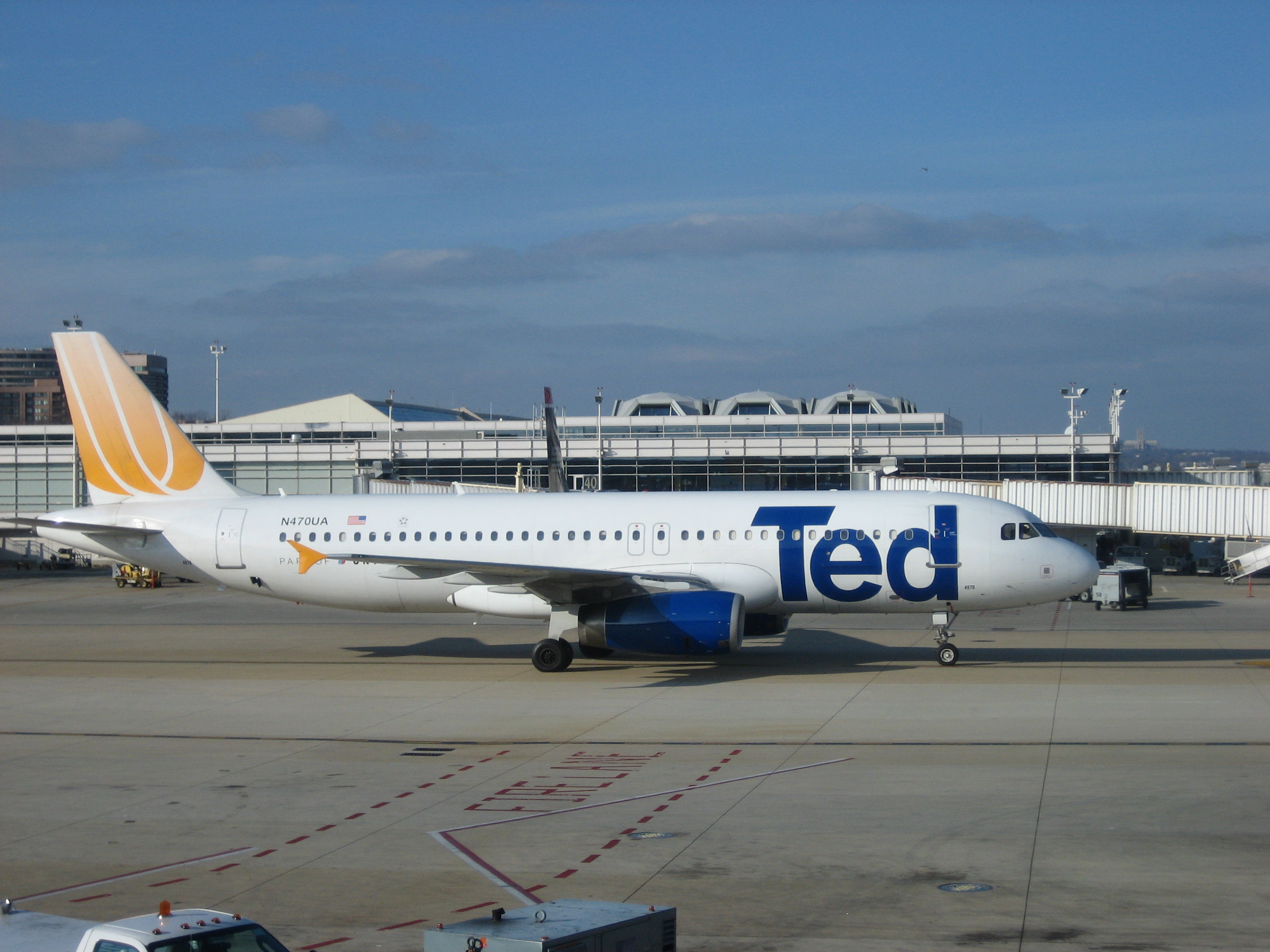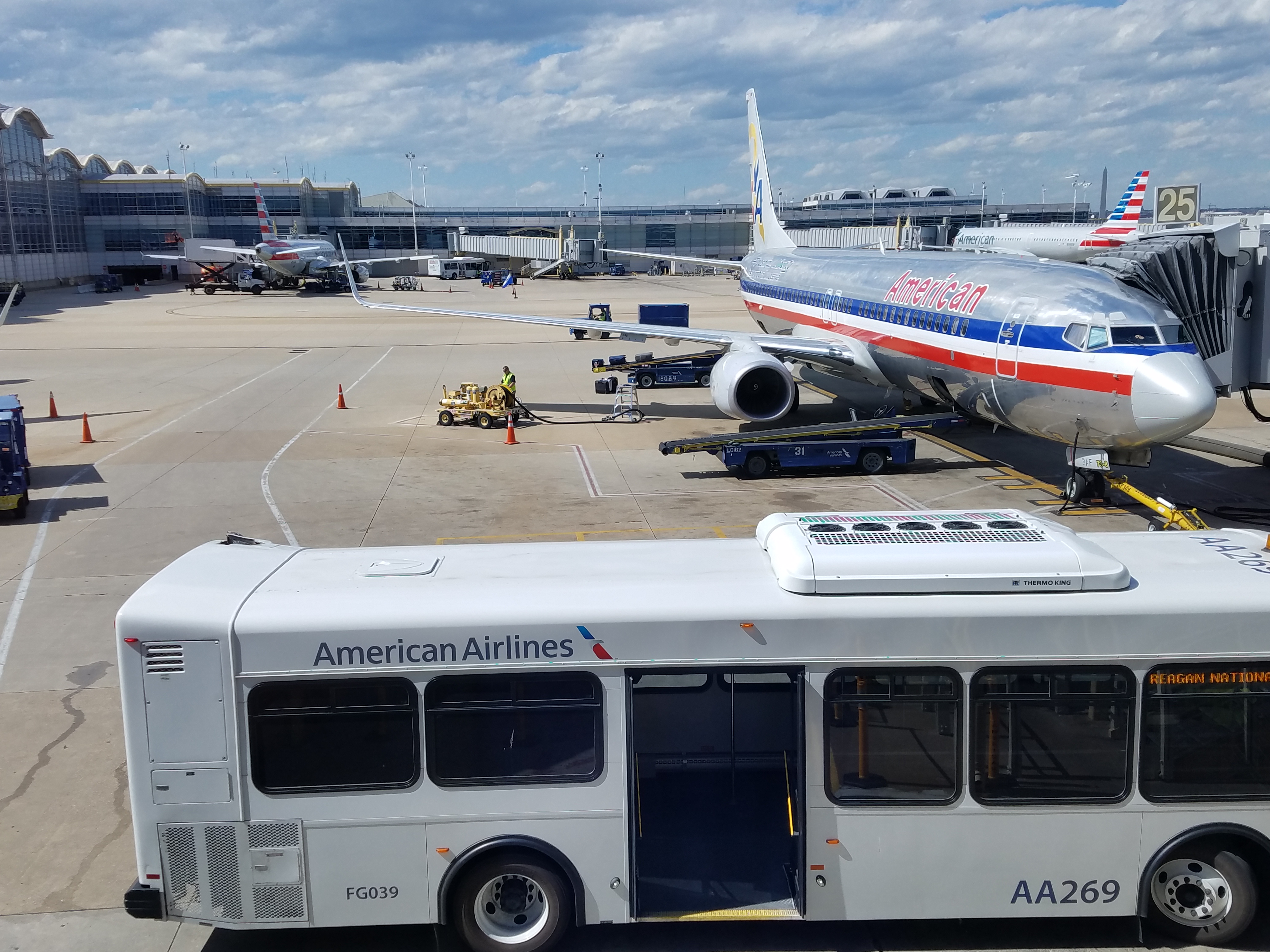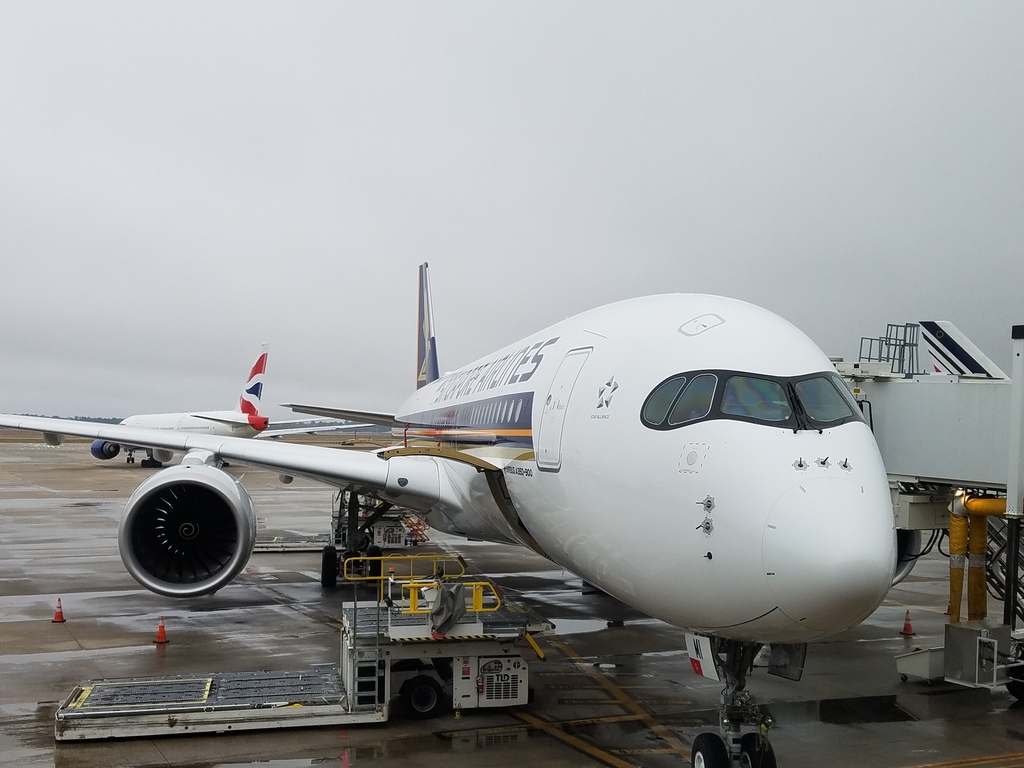Delta had Song. United had TED. (On the West Coast they also had Shuttle by United.) US Airways had MetroJet. Consultants, especially McKinsey, were peddling the same idea to major airlines in exchange for big fees. In order to compete they needed to start low cost carriers inside their carrier, and those new airlines would fly leisure routes. They’d offer lower fares. And in the case of Song they’d even offer a better product than mainline.
Gradually the attempts faltered, and each of the airline-within-an-airline concepts was killed.

Via Wikimedia Commons, credit: Choster
Now the threat isn’t an earlier iteration of Frontier (United’s TED launched out of Denver countering Frontier), Southwest or jetBlue but Spirit, (new) Frontier, and Allegiant. Delta was first out of the gate with Basic Economy fares, a way to match pricing with the ultra low cost carriers without offering a better product, hoping that customers would buy up to more expensive fares for a better product.
Taking the idea further, if Basic Economy was good against the ultra low cost carriers why wouldn’t it be good always and everywhere? While likely overstated, a year ago Delta was claiming that basic economy was worth $80 million to their bottom line.
But the ultra low cost carrier model itself is stalling. Spirit is complaining about low airfares. A recent Airline Weekly‘s lead story this week was, “Ultra-worried: Is the ultra-LCC business model running into trouble?”
Just like the conventional wisdom was that legacy airlines needed separate low cost carriers, the conventional wisdom became that they needed to make their products worse — so bad in fact that customers would be willing to spend more to avoid those stripped down products.
However while Delta was the first out of the gate with this and continues with the strategy,
- They’re on record saying the potential isn’t nearly what United and American expect
- They’ve so far been unwilling to make the product as miserable as United and American (they still allow customers to bring on a carry on bag)

United admits they’re losing business because of basic economy. American hasn’t fully rolled out its Basic Economy yet, and Southwest, JetBlue, and Alaska all offer better products at their lowest fare. They believe once American dutifully continues to play the greater fool they’ll be fine.

But Southwest carries more domestic passengers than anyone else. Southwest, Alaska, and JetBlue all had higher operating margins in the second quarter than United, Delta, and American.
Yet American beat analyst expectations and earned nearly a billion dollars in the second quarter without having rolled out Basic Economy, why would they want to continue to dumb down their product and eliminate their competitive advantage over United while becoming more like Spirit and Allegiant — when Spirit’s and Allegiant’s margins are declining year-over-year more than the industry’s average, and Frontier has delayed its IPO?
We shouldn’t regulate seat sizes. We should educate customers. There are choices, and when customers know what their options are that not all airlines are the same they’ll choose better value rather than worse value.
Surveys may say that customers overall won’t spend more to get a better product, they choose the lower price. But an educated consumer will choose the better product at the same price — which is what the largest domestic airline, and competitors on both the East and West Coasts, offer.
We should legalize competition in the airline industry to ensure consumers have choices, not protect airlines from having to compete.

In nearly every other industry companies strive to make money by delivering greater value at a lower price. Here the airlines are striving to provide less value in order to raise prices.


Hah… is that picture a dreamy hope that someday SQ might be allowed US cabotage rights?
Gary: Economics says that effective competition requires customers to have sufficient information to differentiate between competing products. But the airlines try to hide information, and there is no requirement or incentive for the OTA’s to disclose anything. Nor is there a simple way for customers to compare between competing carriers seat sizes, carry on policies, seat reservation policies, or a myriad of other competitive factors that are (or should be) material to the customer’s purchase decision. So, the competitive model fails.
Gary: Don’t forget CALite – that wonderful invention of Continental Airlines in 1993 that helped make BWI what it is today… It ran from 1993 to 1995 – until the losses there were too great for even Continental to absorb.
Not that I am complaining, it helped me get to top-tier on CO for 5 years in a row – with all that means for me on United today…
I enjoyed Song. Died too soon.
And Retired Lawyer is 100% correct.
99.9% of the time you drive me up a wall Gary with your Basic Economy rants, but, this one actually came across well thought out – pointed out key data points – and wasn’t just your usual “loyalty pays” without any true data.
That said, I still believe you are missing the point of the Big 3 business model – they are attempting to segment their product which honestly on paper makes sense. If you can compete with the Alaska’s and Southwest’s of the world for the leisure traveler but still keep your high value business traveler who will pay to avoid the pain why not do that? Eventually Southwest prices out above United’s BE and well, if I am just doing a personal LAX-SFO hop it makes sense to suffer for the 45 minutes instead of paying an extra $70. Yes, I would pick Southwest if its the cheapest but once its not United BE becomes an option. They aren’t trying to crush Southwest or Alaska – they are trying to not steal a little bit of the pie when they have the capacity to offer it.
The business logic is solid, execution maybe not, but, the business logic is solid.
@SFO-FF United and American have said this segmentation is worth a billion dollars a year. Delta has said “no it’s not.” And they’ve reported figures more like $80mm. Now, American’s annual revenue is about $40 billion. If Delta’s numbers are about right then you’re juicing revenue by about 1/5th of 1% in exchange for diluting your brand.
The theoretical concept of segmenting your customers, charging some customers more who are willing to pay more by giving those paying less a product your higher yield customers wouldn’t be willing to accept, MIGHT be solid — except for competition offering a better product at the same lowest price point.
The ultimate question though is whether the real juice they’re able to extract from this is worth the squeeze.
What doesn’t make sense to me is if the big 3 are using basic economy to compete with the ULCCs, why are they pricing their flights the same as the “LCCs” (non-Big 3). They’ve basically said we’re going to offer a worse product at the same price as Alaska/Southwest/JetBlue at the same price, and offer the same product as Spirit/Frontier at a worse price. Unless they have a captive market, they aren’t being competitive with anyone (except I guess each other). I’m most curious to see whether this has an effect on the traffic for the airlines that don’t have basic economy…
And Retired_Lawyer, one note on your comment, the incentive for OTAs to disclose/reveal things on their site is that the site that offers the most information (and best results) will tend to get more traffic. I mean, that’s what has allowed Google flights to grow so much (and with how fast it is). OTAs get their money from traffic, a differentiated product that offers the most to consumers will/should get them the most traffic. They actually have no incentive to hide the information, they don’t care what airline customers use. And ftr, google already has sort of started showing this. It warns you about small seat pitches, and once you select a flight warns you about checked and carry-on charges.
“… Southwest, Alaska, and JetBlue all had higher operating margins in the second quarter than United, Delta, and American.”
Admittedly I have not read the airlines’ published financial statements, but one thing I note is that the three airlines you’ve mentioned each have limited fleet overhead (and corresponding personnel overhead) when compared to the legacies. As these carriers focus more exclusively in a domestic/short-hop market that has recently become less price-sensitive, wouldn’t this result in better financials overall?
Basic Economy can’t go away soon enough.